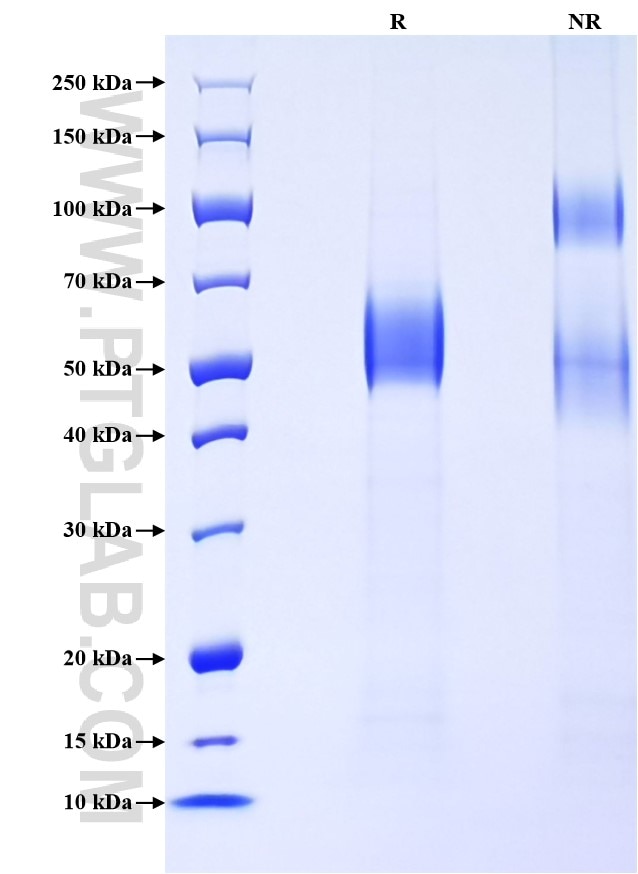Recombinant Human Siglec-9 protein (His Tag)
Species
Human
Purity
>90 %, SDS-PAGE
Tag
His Tag
Activity
not tested
Cat no : Eg1084
Validation Data Gallery
Product Information
| Purity | >90 %, SDS-PAGE |
| Endotoxin | <0.1 EU/μg protein, LAL method |
| Activity |
Not tested |
| Expression | HEK293-derived Human Siglec-9 protein Gln18-Gly348 (Accession# Q9Y336-1) with a His tag at the C-terminus. |
| GeneID | 27180 |
| Accession | Q9Y336-1 |
| PredictedSize | 37.1 kDa |
| SDS-PAGE | 48-70 kDa, reducing (R) conditions |
| Formulation | Lyophilized from 0.22 μm filtered solution in PBS, pH 7.4. Normally 5% trehalose and 5% mannitol are added as protectants before lyophilization. |
| Reconstitution | Briefly centrifuge the tube before opening. Reconstitute at 0.1-0.5 mg/mL in sterile water. |
| Storage Conditions |
It is recommended that the protein be aliquoted for optimal storage. Avoid repeated freeze-thaw cycles.
|
| Shipping | The product is shipped at ambient temperature. Upon receipt, store it immediately at the recommended temperature. |
Background
Sialic acid binding Ig-like lectin 9 (Siglec-9), also known as CD329, is a member of the Siglec family of glycan-recognition proteins. Siglec-9 is a type-I transmembrane protein consisting of an N-terminal extracellular region that contains an N-terminal V-set domain and two C2-set domains, a transmembrane region, and an intracellular domain with an immunoreceptor tyrosine-based inhibitory motif (ITIM) and an ITIM-like motif. It is expressed quite broadly among human blood leukocytes, including monocytes, neutrophils, B cells, NK cells, and minor subsets of T cells. Siglec-9 functions as an inhibitory immune checkpoint and can be targeted to enhance therapeutic antitumor immunity.
References:
1. Zhang JQ. et al. (2000). J Biol Chem. 275(29):22121-6. 2. Zheng Y. et al. (2020). J Immunol Res. 2020:6243819. 3. Ibarlucea-Benitez I. et al. (2021). Proc Natl Acad Sci U S A. 118(26):e2107424118. 4. Mei Y. et al. (2023). Nat Cancer. 4(9):1273-1291.

